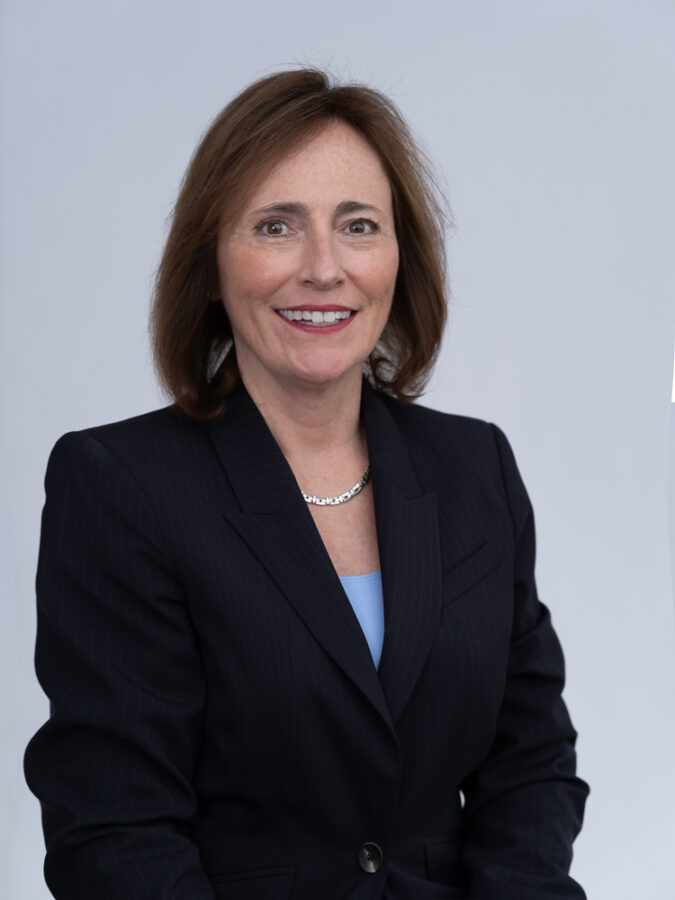The key to financial freedom? Open conversations, survey finds

It's time we had the money talk, say 66% of Americans, who believe open conversations about money are the key to financial freedom. But taboos remain.
This is according to Empower’s new research, Money Talks, which shows that Americans surveyed are constantly planning (64%) and dreaming (58%) about their future, and thinking about finances (61%. But that's where it goes silent.
Over six in 10 (62%) people don't talk about money. Mum's the word with their family (63%), friends (75%), and even with their spouse/partner (46%), though millennials and Gen Z are twice as likely to say they're an "open book," compared to older generations (28% vs. 13%).
Many people would rather discuss politics (43%) and death (32%) than their finances (24%).
Candid 'money talks' can provide financial freedom
This refusal to talk about money may be costing them their dreams, the survey said. A majority of people believe more candid "money talks" have the power to change the world: 66% remark that open conversations can help people build generational wealth, improve the gender wage gap (62%) and over half say that money conversations could improve workplace transparency (56%).
Among the key findings of Money Talks :
- Money is the monster under the bed in many homes – and it's time to turn on the lights: More than half of Americans surveyed say they never talked about finances growing up (52%), and 1 in 4 learned that it's not polite to talk about money. Another 35% of Americans say they were taught to never ask someone how much money they make. Respondents report being raised without practical, critical money lessons like budgeting (32%), saving for retirement (21%), negotiating a salary (18%), or investing (17%).
- There's no such thing as a pot of gold at the end of the rainbow, but when it comes to money, it's much easier for Americans to believe in magic: 71% of Americans have purchased a lottery ticket and 1 in 4 millennials turn to a fortune teller for advice; yet, only one third of Americans have spoken with a financial advisor.
- Taking time to talk about money counts, but people would do almost anything to change the subject: A quarter of Americans (29%) would rather wait in line at the DMV, sit on jury duty (27%) or miss a flight (26%) than tell a stranger how much money they have. Nearly a quarter (24%) would rather go on a blind date, and 18% would prefer to give a big presentation at work than share their financial statements with their friends.
- Financial knowledge is power – and many Americans could benefit from taking stock: Just six in 10 Americans know their own net worth (58%), and only 38% know their partner's. More people are familiar with Elon Musk's net worth (28%) than their own family's (24%). Having clarity around a full financial picture (40%), talking to an advisor (36%), and financial education (34%) can be critical to achieving financial freedom, the survey said.
Why the hesitation to talk about money

So, why are so many Americans reluctant to talk about something that has such a major impact on their daily lives? The way many Americans approach their finances often goes back to foundational conversations they had (or avoided) when it comes to money, explained Carol Waddell, president of Empower personal wealth.
A quarter of Americans say they were taught that it’s impolite to talk about money growing up. For example, Waddell said, “our study found that while 41% report having a piggy bank, only 32% say they were taught how to budget, and the vast majority (79%) of people say they never spoke about how much is “needed” to be financially secure.”
Eight in 10 Americans (83%) admit to making at least one money mistake, with not saving enough for the future (41%), accumulating too much debt (36%), and not having an emergency fund (34%) being the most common. Some 18% say they missed out by not investing in a 401(k), she added.
Salary can be a difficult topic to navigate, and 68% of Americans say they avoid having uncomfortable money conversations at work, noted Waddell. While overall 33% of Americans don’t feel comfortable in asking for a raise, men are 15% more likely to feel comfortable in asking for more money than women (74% vs. 59%).
In addition, Waddell pointed out, while they might not speak up over the water cooler, millennials and Gen Z are eager for more transparency when it comes to compensation. Over half of Gen Z (53%) and millennials (58%) say they would share their salary information on their LinkedIn.
Getting people to talk about money
Despite their initial hesitation, a majority of people believe more candid “money talks” have the power to change the world – from helping to build generational wealth to improving the gender wage gap and workplace transparency, Waddell said.
“One way to help people start talking more openly about money is to reassure them that they’re not alone in their questions: 66% believe that open money conversations can help more people achieve financial freedom,” she added. “Now’s a great time to start.”
The full "Money Talks" report with more findings exploring what's next in life, work and play can be found on The Currency™.
The "Money Talks" report is based on survey responses conducted by The Harris Poll on behalf of Empower from Jan. 3-10, 2023. It surveyed 2,000 Americans ages 18+ and included data from the Empower Personal Dashboard.
\
Ayo Mseka has more than 30 years of experience reporting on the financial services industry. She formerly served as editor-in-chief of NAIFA’s Advisor Today magazine. Contact her at [email protected].
© Entire contents copyright 2023 by InsuranceNewsNet.com Inc. All rights reserved. No part of this article may be reprinted without the expressed written consent from InsuranceNewsNet.com.
Ayo Mseka has more than 30 years of experience reporting on the financial services industry. She formerly served as editor-in-chief of NAIFA’s Advisor Today magazine. Contact her at [email protected].






Equitable Holdings’ earnings fall 22% in Q1, but remains strong in liquid assets
‘Annuity King’ begins defense after judge denies acquittal motion
Advisor News
- DOL proposes new independent contractor rule; industry is ‘encouraged’
- Trump proposes retirement savings plan for Americans without one
- Millennials seek trusted financial advice as they build and inherit wealth
- NAIFA: Financial professionals are essential to the success of Trump Accounts
- Changes, personalization impacting retirement plans for 2026
More Advisor NewsAnnuity News
- F&G joins Voya’s annuity platform
- Regulators ponder how to tamp down annuity illustrations as high as 27%
- Annual annuity reviews: leverage them to keep clients engaged
- Symetra Enhances Fixed Indexed Annuities, Introduces New Franklin Large Cap Value 15% ER Index
- Ancient Financial Launches as a Strategic Asset Management and Reinsurance Holding Company, Announces Agreement to Acquire F&G Life Re Ltd.
More Annuity NewsHealth/Employee Benefits News
- Expanded Affordable Care Act subsidies – now expired – drove major increases in marketplace health insurance enrollment across key groups: Johns Hopkins Bloomberg School of Public Health
- New Insurance Study Findings Have Been Reported from University of South Carolina (Brokering a new path: navigating administrative burdens in the health insurance Marketplaces): Insurance
- Medicaid disenrollment spikes at age 19, study finds: University of Chicago
- How might carriers respond to drop in ACA enrollment?
- CalOptima reports steep membership drop as providers brace for surge in uninsured patients
More Health/Employee Benefits NewsLife Insurance News